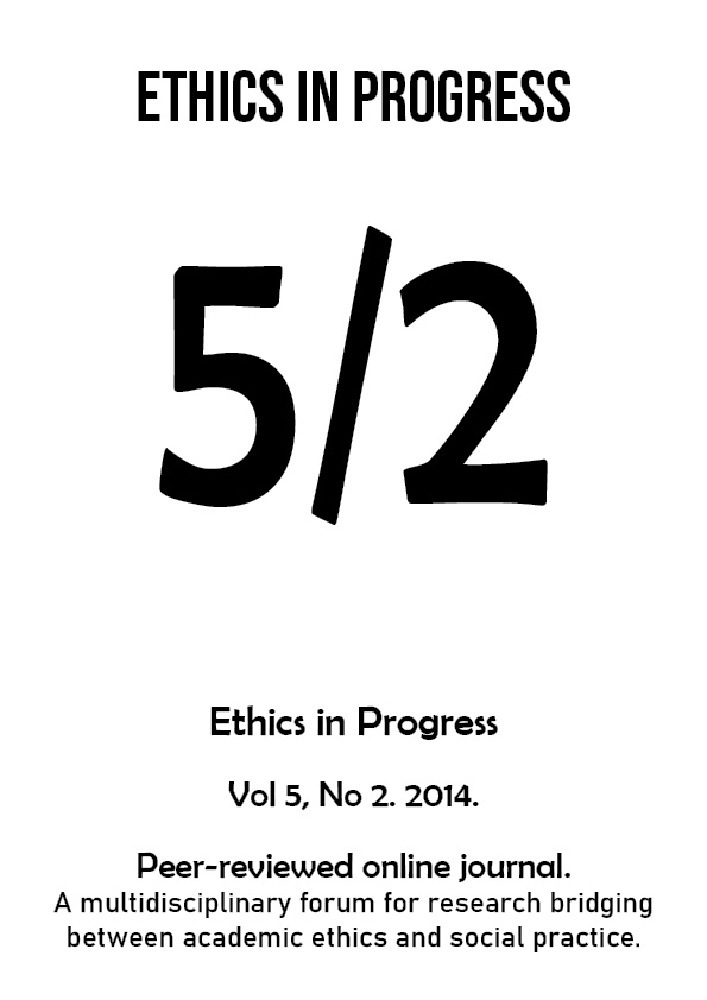Abstract
Submitted article presents a variety of the concept of measure in the early Greek investigations of nature, development of ethical and political structures, fundamental norms of the arts and crafts, and conclusively, searches for understanding of the ἄνθρωπος μέτρον challenge. Among the crucial notions of the early Greek investigations, measure was one of the most receptive: from speculative inquiries to ethical considerations, from theoretical constructions to methodological directives, from normative arrangements to technical solutions. The thinkers and sages introduced the concept of measure into the normative reflection of the ethics and politics, enclosing the most essential and fundamental prescriptions for noble, virtuous and favourable life. Furthermore, the concepts of measure combined the cosmological order with the mathematical proportion, logical principles of recognition with the methodological arrangements for the truth approximation.References
Aristotle, 1984. The Complete Works of Aristotle. The Revised Oxford Translation by J. Barnes (Ed.). Vols. I-II. Princeton: Princeton University Press.
Plato, 1997. Complete Works. Co-edited by J. M. Cooper & D. S. Hutchinson. Indianapolis – Cambridge: Hackett Publishing.
Graham, D.W. 2010. The Texts of Early Greek Philosophy. Cambridge: Cambridge University Press.
Atwill, J.M. 2009. Rhetoric Reclaimed: Aristotle and the Liberal Art Tradition. New York: Cornell University Press.
Diogenes Laertius, 1853. The Lives and Opinions of Eminent Philosophers. Trans. C. D. Yonge. London: Henry G. Bohn.
Galen, 1984. On the Doctrines of Hippocrates and Plato. Trans. by P. De Lacy. Berlin: Akademie Verlag.
Hesiod, 1914. “Works and Days.” In Hesiod. The Homeric Hymns and Homerica. Trans. H. G. Evelyn-White. London: William Heinemann Ltd.
Hesiod, 2007. Theogony. Work and Days. Testimonia, Trans. G. W. Most. Cambridge, MA & London: Harvard University Press.
Hippocrates, 2005. “On Ancient Medicine.” Trans. M. J. Schiefsky. In Scarborough, J. (Ed.), Studies in Ancient Medicine. Leiden and Boston: Brill: 73-110.
Hussey, E. 1999. “Heraclitus.” In Long, A. A. (Ed.), The Cambridge Companion to Early Greek Philosophy. Cambridge: Cambridge University Press: 88-112.
Kirk, G. S., Raven, J. E., & Schofield, M. 1983. The Presocratic Philosophers: A Critical History with Selection of Texts. Cambridge: Cambridge University Press.
Academy of Athens. Research Center for Greek Philosophy 1994. Lexicon of Presocratic Philosophy. Athens: R.C.G.P.
Liddell, H. G. H. & Scott, R. 1889. An Intermediate Greek-English Lexicon.Oxford: Oxford University Press.
Lewis, J. 2006. Solon the Thinker. Political Thought in Archaic Athens. London: Lloyd, G.E.R.
Loeb, A. L. 1971. “Structure and Patterns in Science and Art.” Leonardo 4(4).New York: Wiley – Interscience: 339-346.
Long, A. A. (Ed.) 1999. The Cambridge Companion to Early Greek Philosophy. Cambridge: Cambridge University Press.
Minar, E. L. 1939. “The Logos of Heraclitus.” Classical Philology 34(4). Chicago: The University of Chicago Press: 323-341.
Most, G. W. 1999. “The Poetics of Early Greek Philosophy.” In Long, A. A. (Ed.), The Cambridge Companion to Early Greek Philosophy. Cambridge: Cambridge University Press: 332-362.
Moutsopoulos, M. 2006. Thought, Culture, Action. Studies in the Theory of Values and Its Greek Sources. Athens: Academy of Athens.
Naddaf, G. 2005. The Greek Concept of Nature. New York - Albany: State University of New York Press.
Reale, G. 2005. Storia della filosofia antica. Vol. I. Milano: Vita e Pensiero.Schiappa, E. 2003. Protagoras and Logos. A Study in Greek Philosophy and Rhetoric, Columbia: University of South Carolina Press: 117-133.
Schiefsky, M. J. 2005. Studies in Ancient Medicine. Leiden - Boston: Brill: 1-19;111-344.
Sipiora, P. 2002. “Introduction: The Ancient Concept of Kairos.” In Sipiora, P. & Baumlin, J.S. (Eds.), Rhetoric and Kairos: Essays in History, Theory, and Praxis. New York, Albany: State University of New York Press: 1-22.
Tatarkiewicz, W. 1970. History of Aesthetics. Vol. I: Ancient Aesthetics. The Hague – Paris: Mouton.
Taylor, C. C. W. 1999. “The Atomists.” In Long, A. A. (Ed.), The Cambridge Companion to Early Greek Philosophy. Cambridge: Cambridge University Press: 181-204.
Vamvacas, C. J. 2002. The Founders of Western Thought – The Presocratics, Boston: Springer.
Versenyi, L. 1974. Man's Measure: A Study of the Greek Image of Man from Homer to Sophocles. New York, Albany: State University of New York Press.
Woodruff, P. 1999. “Rhetoric and relativism: Protagoras and Gorgias.” In Long, A. A. (Ed.), The Cambridge Companion to Early Greek Philosophy.Cambridge: Cambridge University Press




